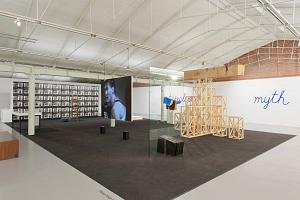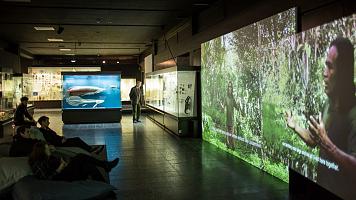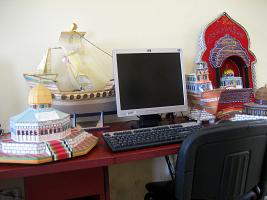MPhil/PhD
Visual Culture
Content navigation menu
Why study MPhil/PhD Visual Culture at Goldsmiths
We welcome applicants wishing to explore visual culture understood as a meeting ground between creative practices, the philosophical and the political.
-
We usually accept research students into the Department of Visual Cultures on the basis of a match between your proposed research and the current research interests of the department, as well as an assessment of your qualifications and suitability to undertake a research degree.
-
In order to ascertain whether your project matches our research interests and meets the criteria for MPhil and PhD level study, please consult our application pack which also contains a proposal form.
Contact the department
If you have specific questions about the degree, contact Lynn Turner or Anthony Faramelli.
Length
3-4 years full-time or 4-7 years part-time
Fees
Home - full-time: £TBC
Home - part-time: £TBC
International - full-time: £19000
Department
Research themes
Research in the department is organised around thematic clusters and we welcome proposals from applicants wishing to explore visual culture within the context of one of these clusters.
The research being carried out by both staff and students involves not just the range of thematics and concerns listed here, but also a set of dynamic methodologies that span the theoretical and the practice-based and foreground exploratory and innovative modes of submission and delivery.
Research clusters
- Culture, Memory, Futurity
- Environmental Humanities and Ecologies
- Globalisation and Transcultural Practices
- Performance and Live Art
- Philosophy, Critical and Visual Theory
- Political Aesthetics
- Sexes, Genders, Genres
- Spatial Practice and Architecture
- Technologies of Image and Sound
- The Curatorial
You'll research
The MPhil/PhD programme will be structured around the following elements:
PhD seminar
In addition to regular tutorials with your supervisor, you will attend the MPhil/PhD Visual Culture seminar in your first and second years of study. This is a weekly seminar dedicated to research questions and theoretical problems of study at MPhil/PhD level. It has the additional aim of fostering a supportive and participatory postgraduate research culture in the department.
Other courses, seminars, workshops and events
As well as participating in the PhD seminar you are invited to audit an MA Special Subject of your choice should this be helpful. At key moments throughout the year, MPhil/PhD students on the Visual Culture programme join students on our MPhil/PhD Advanced Practices programme and there are also opportunities to benefit from seminars and workshops associated with our Centre for Research Architecture.
The Visual Cultures Public Programme
You are encouraged to attend the department’s Visual Cultures Public Programme. These events take place on Thursday evenings and are followed by an opportunity to socialise with staff, fellow students and other attendees.
Research training
The department requires all students to attend the research student training programmes organised by ReSKIN (the Research Skills Intercollegiate Network). This is an organisation made up of various departments across the University of London, and the training is aimed specifically at students studying for a PhD in Art History, Visual Culture, Fine Art Practice and cognate disciplines.
A Goldsmiths-wide programme of research training is also provided, which involves an induction course (which all students should attend), introduction to information technologies and the use of library and bibliographic resources, and sessions on research planning, presentation skills and ethics.
Fees and funding
Annual tuition fees
These are the PG fees for students starting their programme in the 2025/2026 academic year.
- Home - full-time: £TBC
- Home - part-time: £TBC
- International - full-time: £19000
If your fees are not listed here, please check our postgraduate fees guidance or contact the Fees Office, who can also advise you about how to pay your fees.
It’s not currently possible for international students to study part-time under a student visa. If you think you might be eligible to study part-time while being on another visa type, please contact our Admissions Team for more information.
If you are looking to pay your fees please see our guide to making a payment.
Funding opportunities
You may be eligible for the following funding:
Paying your fees
Find out about paying your tuition fees.
Additional costs
In addition to your tuition fees, you'll be responsible for any additional costs associated with your course, such as buying stationery and paying for photocopying. You can find out more about what you need to budget for on our study costs page.
There may also be specific additional costs associated with your programme. This can include things like paying for field trips or specialist materials for your assignments.
Entry requirements
You should normally have (or expect to be awarded) a taught Masters in a relevant subject area.
You might also be considered for some programmes if you aren’t a graduate or your degree is in an unrelated field, but have relevant experience and can show that you have the ability to work at postgraduate level.
International qualifications
We accept a wide range of international qualifications. Find out more about the qualifications we accept from around the world.
If English isn’t your first language, you will need an IELTS score (or equivalent English language qualification) of 6.5 with a 6.5 in writing and no element lower than 6.0 to study this programme. If you need assistance with your English language, we offer a range of courses that can help prepare you for postgraduate study.
What our students say
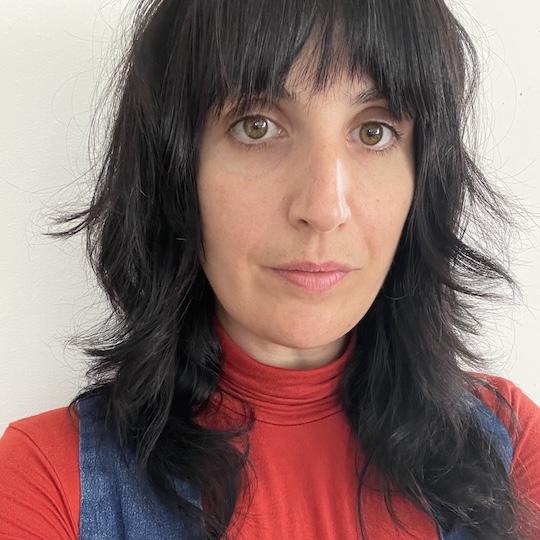
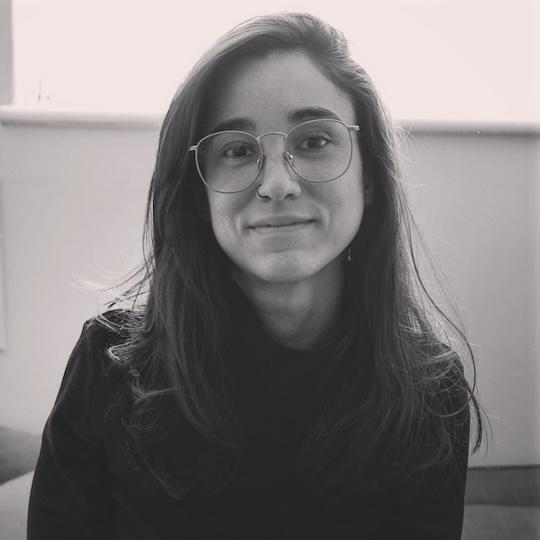
How to apply
You apply directly to Goldsmiths using our online application system.
Before submitting your application you'll need to have:
- Your completed research proposal – full details are outlined in our application pack
- Details of your education history, including the dates of all exams/assessments
- The email address of your referee who we can request a reference from, or alternatively an electronic copy of your academic reference
- Contact details of a second referee
- A personal statement – this can either be uploaded as a Word Document or PDF, or completed online
- If available, an electronic copy of your educational transcript (this is particularly important if you have studied outside of the UK, but isn’t mandatory)
You'll be able to save your progress at any point and return to your application by logging in using your username/email and password.
If you wish to study on a part-time basis, you should also indicate how many hours a week you intend to devote to research, whether this will be at evenings or weekends, and for how many hours each day.
When to apply
We accept applications from October for students wanting to start the following September. Applications are processed and assessed in three application rounds. Please consult our application pack for details of all key application deadlines.
We encourage you to complete your application as early as possible, even if you haven't finished your current programme of study. It's very common to be offered a place conditional on you achieving a particular qualification.
If you're applying for external funding from one of the Research Councils, make sure you submit your application by the deadline they've specified.
Selection process
Admission to many programmes is by interview, unless you live outside the UK. Occasionally we'll make candidates an offer of a place on the basis of their application and qualifications alone.
Further guidance
Find out more about applying.


